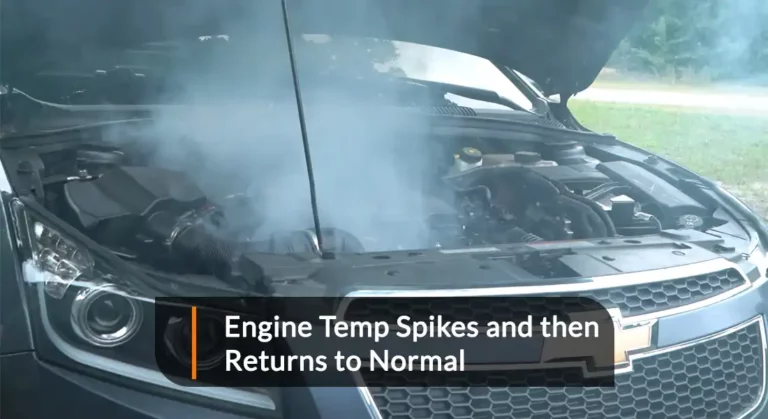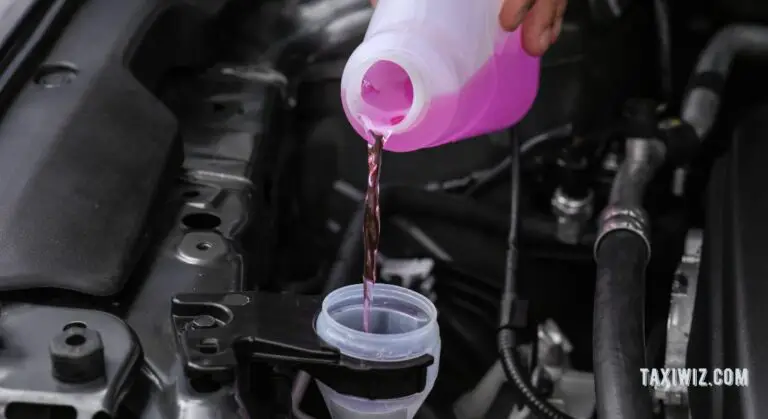6 Reasons Why Fuel Pump Won’t Turn On With Ignition
Fuel pump is a crucial component for ensuring the car runs steadily. Drivers will have to provide ignition to the car for it to become active.
Here is a list of the most common reason why Fuel Pump Won’t Turn On With Ignition:
- Defective MAP Sensor
- Faulty CAM Sensor
- Poor Quality Crank Sensor
- MAF Sensor Issue
- Flawed Fuel Pump Relay
- Poor Electronic Control Unit
There are multiple reasons behind this problem arising which include defective ignition module, fuel pump malfunctioning, and many more.
Our article will explore every possible cause to help you take the necessary measures effectively.
Why Your Fuel Pump Won’t Turn On With Ignition?

A plethora of reasons with minor or major implications usually causes a car’s fuel pump to not turn on despite receiving ignition. Below are some of the most prominent ones to help you understand the scenario and come up with a solution effectively.
1. Defective MAP Sensor
Manifold Absolute Pressure (MAP) sensor have become an integral part of the recent models of fuel-injected cars. It is integrated into the engine’s Electric Control Unit (ECU).
This sensor’s primary job is to transmit multiple signals to the engine’s ECU. It’s crucial for the car to receive enough fuel to have proper ignition. A broken MAP sensor essentially bars the car from getting optimum energy to start.
A faulty MAP sensor doesn’t provide the correct signal to the car. Therefore, the ignition doesn’t emit the necessary data. As a result, the fuel pump doesn’t start despite the vehicle receiving ignition.
Typically, the engine’s carbon deposits contaminate the MAP sensor. Using an electric parts cleaner on it can greatly improve its condition. However, it’s best to get a replacement if it still causes any problems.
2. Faulty CAM Sensor
Camshaft position sensors are a vital part of car’s observational system. The information it provides regarding the piston strokes assists its engine control model. This data helps the ECM regulate the timing of the valve and fuel injection.
A shorted CAM sensor essentially deprives the car of receiving the ideal information necessary for ignition. Thus, it bars the fuel pump from turning on by extension.
Unfortunately, there’s no method that can help you repair a defective CAM sensor. Therefore, it’s best to remove it immediately. Installing a replacement is relatively easy as you can complete the entire process with a ratchet and a few sockets.
3. Poor Quality Crank Sensor
Crank sensors have become an integral part of every vehicle that runs on fossil fuel nowadays.
Its primary task is to control the timing of the ignition, observe the engine’s velocity, and maintain awareness of the cylinder’s activities.
Any problems with the crank sensor will immediately prevent the car’s fuel pump from turning on. The defect will prevent the sensors from sending the data that is vital to the ignition system’s activation. Thus, the fuel pump won’t start.
Drivers can easily find out if their crank sensor is damaged by scanning it with a multimeter. If the device shows it to be faulty, then it’s best to replace it immediately.
4. MAF Sensor Issue
One of the most critical components in a vehicle’s fuel injection module is the Mass Air Flow (MAF) sensor. This part is in charge of calculating the airflow density and volume in the car’s engine.
Small signals are sent to the car’s computer from the MAF sensor to inform it of how much air is necessary for the fuel supply. Sending accurate signals is vital for the vehicle to run without any hassle.
Accumulation of dirt on the MAF sensor often causes the car to underperform. It can cause the engine to shut down, resulting in the fuel pump not getting power.
Cleaning the MAF sensor is an easy and cost-effective approach to prevent it from underperforming. There are special cleaners that are perfect for this endeavor. You can also fit a dust filter to the module to prevent dirt from amassing on it.
5. Flawed Fuel Pump Relay
One of the most common reasons behind the fuel pump not getting power is if its relay is defective. It’s responsible for creating the combustion for starting the car by ensuring the proper fuel flow into the engine.
The ignition is the main power source for the fuel pump. Its function is vital to keep the vehicle operational consistently.
Therefore, a defect in this component will cause an inconsistency in the energy supply, preventing it from turning on despite receiving ignition.
Replacing the fuel pump relay is the best solution in this scenario. However, doing so can be an expensive endeavor. Changing it with the car’s power distribution box relay can be a temporary solution while you save up for a replacement.
6. Poor Electronic Control Unit
An electronic control unit (ECU) is a collection of various parts and modules that directly contributes to a car’s performance. It functions as the brain of the vehicle and transmits information to all the other relevant components.
A defect in the ECU means that all the other parts of the car are at risk of malfunctioning. Therefore, it’s also possible that the fuel pump won’t turn on even after ignition due to it.
Thankfully, the ECU of most cars are easily reprogrammable. Therefore, you can easily repair this component with a technician’s assistance. A replacement in this scenario can incur a massive expense.
My Fuel System WON’T TURN OFF! Even with the Key Not In! >> Check out the video below:
Frequently Asked Questions (FAQs)
1. How long does it take for the fuel pump to turn on?
Typically, it takes 2-3 seconds for the fuel pump to turn on after getting ignition.
2. What is the longevity of a fuel pump?
The average fuel pump lasts for at least 1,00,000 miles.
3. How does a fuel pump become weak?
A fuel pump gets weak when it fails to pump the necessary pressure, causing the vehicles to take more cranks than necessary.
Conclusion
To recap, Here is a list of the most common reason for Fuel Pump Won’t Turn On With Ignition:
- Defective MAP Sensor
- Faulty CAM Sensor
- Poor Quality Crank Sensor
- MAF Sensor Issue
- Flawed Fuel Pump Relay
- Poor Electronic Control Unit
Most of these issues might require you to replace complete parts of the car entirely. Meanwhile, others are easily fixable by the user themselves or through the support of a professional mechanic.
Related articles:



